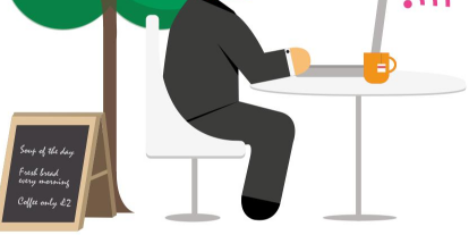May 19, 2017
Senior public sector managers feel more able to enjoy flexible working 0
 A growing number of senior managers in the UK public sector feel they are able to enjoy flexible working, although workloads remain a constraining factor, claims a new study by the FDA Union which represents senior civil servants. The study found that nearly all public sector bodies now offer some form of flexible working, but uptake is held back by job pressures. More than one in six managers now say they are able to work flexibly, according to a survey by the FDA union, a figure which has risen markedly over the last year. Nearly all respondents (95 percent) said their employer had flexible working policies in place, a slight increase from the previous year’s survey, when 93 percent of respondents said such policies were in place.
A growing number of senior managers in the UK public sector feel they are able to enjoy flexible working, although workloads remain a constraining factor, claims a new study by the FDA Union which represents senior civil servants. The study found that nearly all public sector bodies now offer some form of flexible working, but uptake is held back by job pressures. More than one in six managers now say they are able to work flexibly, according to a survey by the FDA union, a figure which has risen markedly over the last year. Nearly all respondents (95 percent) said their employer had flexible working policies in place, a slight increase from the previous year’s survey, when 93 percent of respondents said such policies were in place.
















 A new survey by office products supplier Viking claims that a third of workers suffer from stress and yet have no one to talk to about it. The authors of the study claims that these findings correlate strongly with people’s overall levels of fulfilment at work, with 46 percent of those surveyed saying they had negative thoughts about their job several times a week. When it comes to a person’s working environment, the results showed that office workers were more stressed than those working from home. Factors that contributed to these stress levels included working overtime, not taking enough breaks, having no one to talk to, job satisfaction, pressure to succeed. It’s no surprise that a lack of breaks is causing stress, with half of office workers admitting to taking no breaks at all during the day, excluding lunch. Conversely, a massive 61 percent of people working from home said they took two to three breaks throughout the day.
A new survey by office products supplier Viking claims that a third of workers suffer from stress and yet have no one to talk to about it. The authors of the study claims that these findings correlate strongly with people’s overall levels of fulfilment at work, with 46 percent of those surveyed saying they had negative thoughts about their job several times a week. When it comes to a person’s working environment, the results showed that office workers were more stressed than those working from home. Factors that contributed to these stress levels included working overtime, not taking enough breaks, having no one to talk to, job satisfaction, pressure to succeed. It’s no surprise that a lack of breaks is causing stress, with half of office workers admitting to taking no breaks at all during the day, excluding lunch. Conversely, a massive 61 percent of people working from home said they took two to three breaks throughout the day.






 The Government is being urged to reassess its plans to request an opt-out from the EU Working Time Directive, when it seeks to renegotiate the terms of the UK’s membership of the EU. The Directive stipulates a 48 hour working week, which the Government has argued is stifling competitiveness and flexibility. According to research by
The Government is being urged to reassess its plans to request an opt-out from the EU Working Time Directive, when it seeks to renegotiate the terms of the UK’s membership of the EU. The Directive stipulates a 48 hour working week, which the Government has argued is stifling competitiveness and flexibility. According to research by 







December 8, 2015
Six human resources costs you might avoid by choosing the right office 0
by Darren Bilsborough • Comment, Property, Workplace, Workplace design
(more…)